Related Research Articles

Robert Penn Warren was an American poet, novelist, and literary critic and was one of the founders of New Criticism. He was also a charter member of the Fellowship of Southern Writers. He founded the literary journal The Southern Review with Cleanth Brooks in 1935. He received the 1947 Pulitzer Prize for the Novel for All the King's Men (1946) and the Pulitzer Prize for Poetry in 1958 and 1979. He is the only person to have won Pulitzer Prizes for both fiction and poetry.
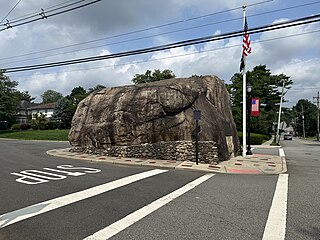
Glen Rock is a borough in Bergen County, in the U.S. state of New Jersey. As of the 2020 United States census, the borough's population was 12,133, an increase of 532 (+4.6%) from the 2010 census count of 11,601, which in turn reflected increased by 55 (+0.5%) from the 11,546 counted in the 2000 census.
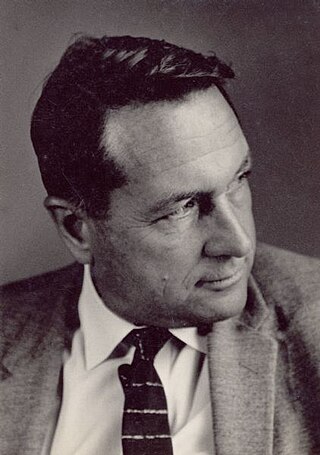
The Highlander Research and Education Center, formerly known as the Highlander Folk School, is a social justice leadership training school and cultural center in New Market, Tennessee. Founded in 1932 by activist Myles Horton, educator Don West, and Methodist minister James A. Dombrowski, it was originally located in the community of Summerfield in Grundy County, Tennessee, between Monteagle and Tracy City. It was featured in the 1937 short film, People of the Cumberland, and the 1985 documentary film, You Got to Move. Much of the history was documented in the book Or We'll All Hang Separately: The Highlander Idea by Thomas Bledsoe.

Emily Howland was a philanthropist and educator. She supported the education of African-Americans. She was also a strong supporter of women's rights and the temperance movement. Howland personally financed the education of many black students and contributed to institutions such as the Tuskegee Institute, Henry Damon Davidson's Centerville Industrial Institute, and Kowaliga Institute in Kowaliga, Alabama where Howland Hall was named for her.

John Robert Lewis was an American politician and civil rights activist who served in the United States House of Representatives for Georgia's 5th congressional district from 1987 until his death in 2020. He participated in the 1960 Nashville sit-ins and the Freedom Rides, was the chairman of the Student Nonviolent Coordinating Committee (SNCC) from 1963 to 1966, and was one of the "Big Six" leaders of groups who organized the 1963 March on Washington. Fulfilling many key roles in the civil rights movement and its actions to end legalized racial segregation in the United States, in 1965 Lewis led the first of three Selma to Montgomery marches across the Edmund Pettus Bridge, where, in an incident that became known as Bloody Sunday, state troopers and police attacked Lewis and the other marchers.
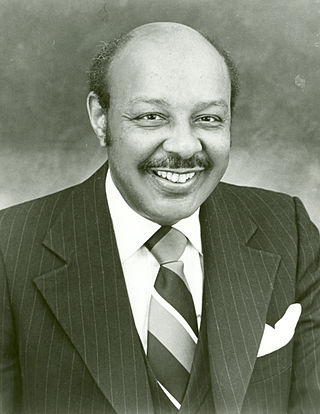
Louis Stokes was an American attorney, civil rights pioneer and politician. He served 15 terms in the United States House of Representatives – representing the east side of Cleveland – and was the first African American congressman elected in the state of Ohio. He was one of the Cold War-era chairmen of the House Intelligence Committee, headed the Congressional Black Caucus, and was the first African American on the House Appropriations Committee.

Shepherd University is a public university in Shepherdstown, West Virginia. It is accredited by the Higher Learning Commission. In the fall of 2023, the university enrolled 3,274 students.

Armstrong High School, part of the Richmond Public Schools, is a high school located in Richmond, Virginia, United States, with grades 9–12. The school was founded in 1867 as the Richmond Normal and High School by the Freedmen's Bureau and was eventually incorporated into the Richmond school system in 1876. The school's namesake is former Union General Samuel Chapman Armstrong, a white commander of a U.S. Colored Troops (USCT) regiment during the American Civil War. General Armstrong later founded Hampton Institute, a historically black college now known as Hampton University in Hampton, Virginia. Armstrong was a mentor of Booker T. Washington.

Myles Falls Horton was an American educator, socialist, and co-founder of the Highlander Folk School, famous for its role in the Civil Rights Movement. Horton taught and heavily influenced most of the era's leaders. They included Martin Luther King Jr., Rosa Parks, John Lewis, James Bevel, Bernard Lafayette, and others who would create the Nashville Student Movement, Ralph Abernathy, John B. Thompson, and many others.

Hampton University is a private, historically black, research university in Hampton, Virginia. Founded in 1868 as Hampton Agricultural and Industrial School, it was established by Black and White leaders of the American Missionary Association after the American Civil War to provide education to freedmen. The campus houses the Hampton University Museum, which is the oldest museum of the African diaspora in the United States and the oldest museum in the commonwealth of Virginia. First led by former Union General Samuel Chapman Armstrong, Hampton University's main campus is located on 314 acres in Hampton, Virginia, on the banks of the Hampton River.

John Mercer Langston was an American abolitionist, attorney, educator, activist, diplomat, and politician. He was the founding dean of the law school at Howard University and helped create the department. He was the first president of what is now Virginia State University, a historically black college. He was elected a U.S. Representative from Virginia and wrote From the Virginia Plantation to the National Capitol; Or, the First and Only Negro Representative in Congress From the Old Dominion.

Glen Rock High School is a four-year comprehensive public high school serving students in ninth through twelfth grades from Glen Rock, in Bergen County, in the U.S. state of New Jersey, operating as the lone secondary school of the Glen Rock Public Schools. The school shares a campus with Glen Rock Middle School.
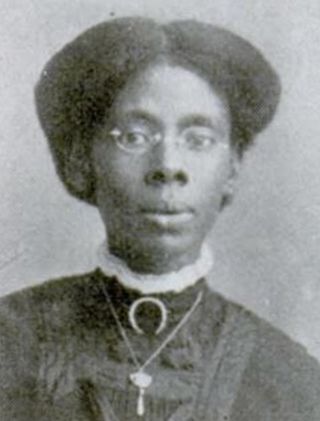
Virginia Estelle Randolph was an American educator in Henrico County, Virginia. She was named the United States' first "Jeanes Supervising Industrial Teacher" by her Superintendent of Schools, Jackson Davis, and she led a program funded by the Jeanes Foundation to upgrade vocational training throughout the U.S. South as her career progressed. Her work is widely associated with vocational education. Two schools of the Henrico County Public Schools system were named in her honor and in 2009 Randolph was posthumously honored by the Library of Virginia as one of their "Virginia Women in History" for her career and contributions to education.
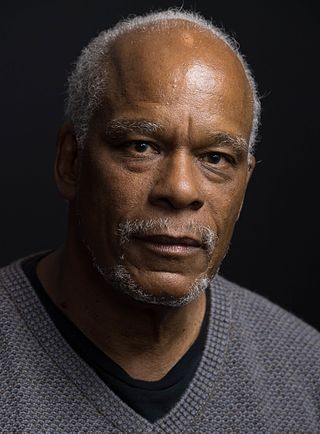
Stanley Earl Nelson Jr. is an American documentary filmmaker and a MacArthur Fellow known as a director, writer and producer of documentaries examining African-American history and experiences. He is a recipient of the 2013 National Humanities Medal from President Obama. He has won three Primetime Emmy Awards.

Barbara Rose Johns Powell was a leader in the American civil rights movement. On April 23, 1951, at the age of 16, Powell led a student strike for equal education opportunities at R.R. Moton High School in Farmville, Prince Edward County, Virginia. After securing NAACP legal support, the Moton students filed Davis v. Prince Edward County, the only student-initiated case consolidated into Brown v. Board of Education, the landmark 1954 U.S. Supreme Court decision declaring "separate but equal" public schools unconstitutional.
Zilphia Horton was an American musician, community organizer, educator, Civil Rights activist, and folklorist. She is best known for her work with her husband Myles Horton at the Highlander Folk School where she is generally credited with turning such songs as "We Shall Overcome", "We Shall Not Be Moved," and "This Little Light of Mine" from hymns into protest songs of the Civil Rights Movement.

Judy Richardson is an American documentary filmmaker and civil rights activist. She was Distinguished Visiting Lecturer of Africana Studies at Brown University.

Alice Carlotta Jackson Stuart was an American educator, and the first African-American woman to apply for graduate school studies at the University of Virginia. She was denied on the basis of "good and sufficient reasons" and later went on to earn her Master of Arts at Columbia University in 1937.
Joseph Charles Jones was an American civil rights leader, attorney, co-founder of the Student Nonviolent Coordinating Committee (SNCC), and chairperson of the SNCC's direct action committee.

David Hamilton Golland is an American historian of the 20th-century United States with a focus on the history of civil rights, public policy, politics, and labor. He serves as dean of the School of Humanities and Social Sciences and Professor of History at Monmouth University.
References
- ↑ Virginia, Birth Records, 1912-2016, Delayed Birth Records, 1854-1911
- ↑ "Interview with John A. Stokes". VCU Libraries. Virginia Commonwealth University . Retrieved 7 October 2016.
- ↑ "John Arthur Stokes · Virginia Changemakers". The Library of Virginia. Retrieved 21 January 2020.
- ↑ De Santa, Richard (11 April 2014). "Civil Rights Leader Shares His Story" . Glen Rock Gazette. Glen Rock, New Jersey. p. 1. Retrieved 21 January 2020.
- ↑ "The Library of Virginia African American Trailblazer 2011 - John Arthur Stokes". www.lva.virginia.gov.
- 1 2 3 "Brown & Associates - John Stokes". brownandassociates-speakers.com. Retrieved 2020-08-28.
- ↑ "The Man, The Mission, The Story!!!". johnastokes.com. Retrieved 2020-08-28.